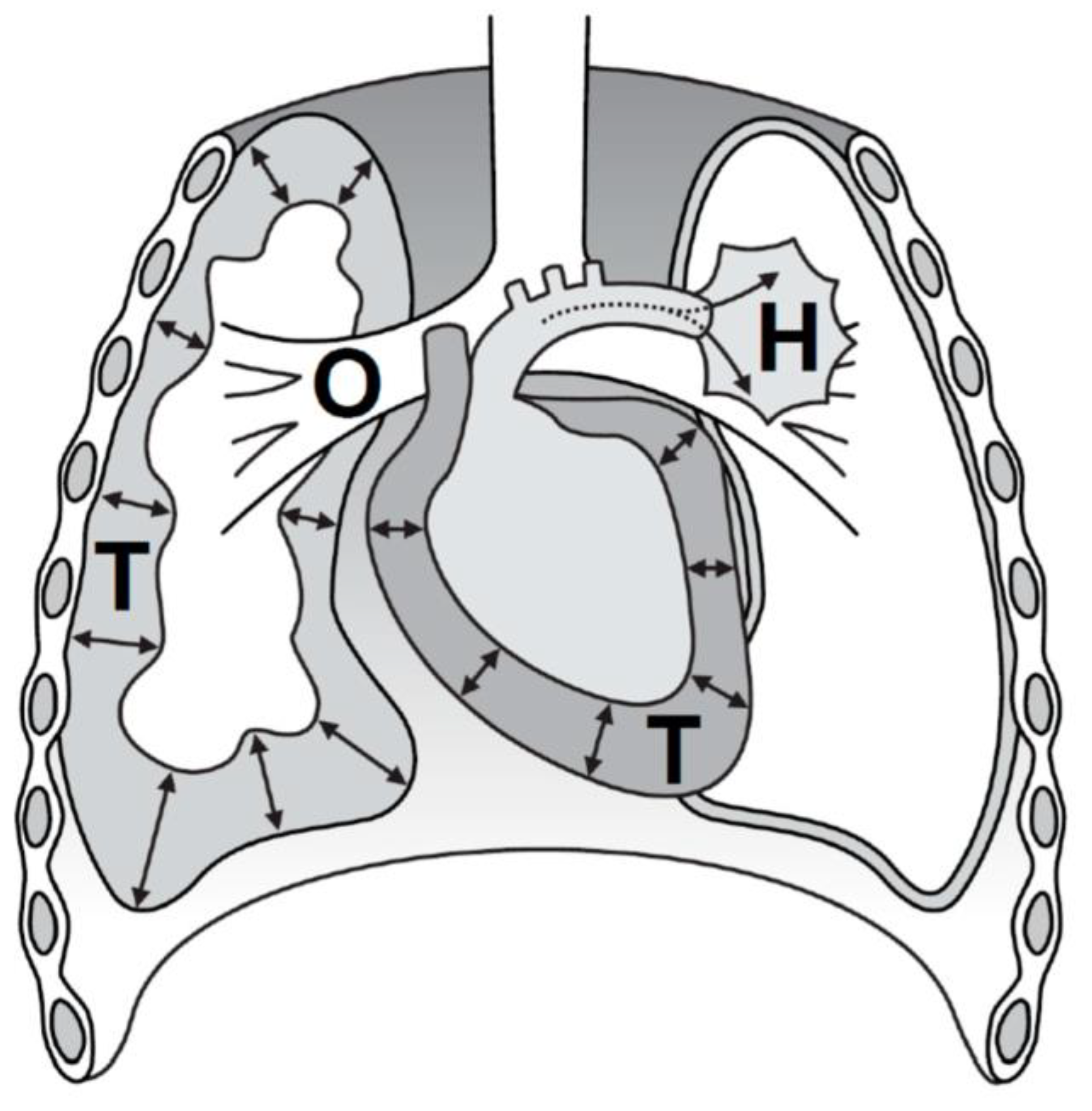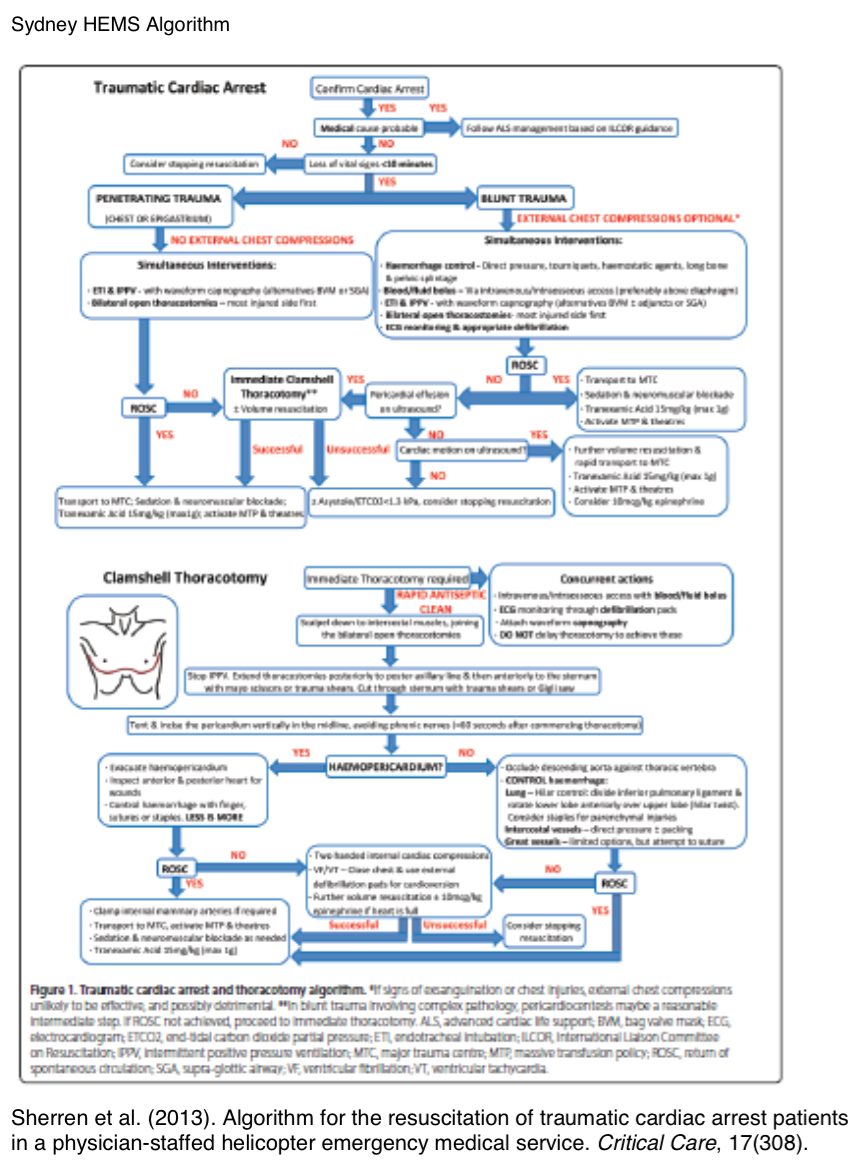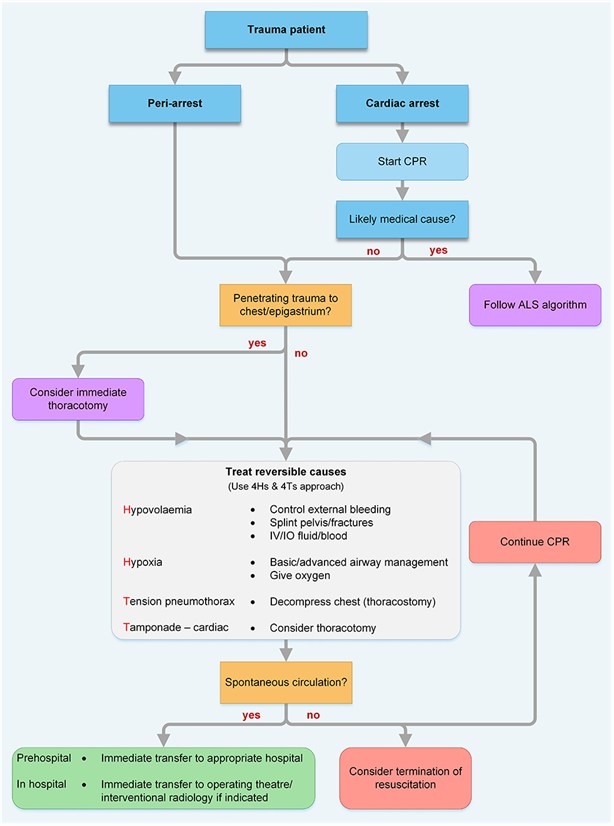Traumatic Cardiopulmonary Arrest - Cardiopulmonary deterioration associated with trauma has several possible causes: Emerging techniques are suggested for the management of refractory hemorrhagic shock and cardiac arrest, such as the reboa. For eds that are not designated major trauma centres a traumatic cardiac arrest (tca) may be an infrequent event which requires a.
Emerging techniques are suggested for the management of refractory hemorrhagic shock and cardiac arrest, such as the reboa. Cardiopulmonary deterioration associated with trauma has several possible causes: For eds that are not designated major trauma centres a traumatic cardiac arrest (tca) may be an infrequent event which requires a.
Cardiopulmonary deterioration associated with trauma has several possible causes: For eds that are not designated major trauma centres a traumatic cardiac arrest (tca) may be an infrequent event which requires a. Emerging techniques are suggested for the management of refractory hemorrhagic shock and cardiac arrest, such as the reboa.
Traumatic Cardiac Arrest Blog RCEMLearning
Emerging techniques are suggested for the management of refractory hemorrhagic shock and cardiac arrest, such as the reboa. For eds that are not designated major trauma centres a traumatic cardiac arrest (tca) may be an infrequent event which requires a. Cardiopulmonary deterioration associated with trauma has several possible causes:
Diagram of Week 5 Traumatic Cardiac Arrest CPG Quizlet
For eds that are not designated major trauma centres a traumatic cardiac arrest (tca) may be an infrequent event which requires a. Emerging techniques are suggested for the management of refractory hemorrhagic shock and cardiac arrest, such as the reboa. Cardiopulmonary deterioration associated with trauma has several possible causes:
Traumatic Cardiac Arrest—A Narrative Review
For eds that are not designated major trauma centres a traumatic cardiac arrest (tca) may be an infrequent event which requires a. Emerging techniques are suggested for the management of refractory hemorrhagic shock and cardiac arrest, such as the reboa. Cardiopulmonary deterioration associated with trauma has several possible causes:
Traumatic Cardiac Arrest RCEMLearning
For eds that are not designated major trauma centres a traumatic cardiac arrest (tca) may be an infrequent event which requires a. Cardiopulmonary deterioration associated with trauma has several possible causes: Emerging techniques are suggested for the management of refractory hemorrhagic shock and cardiac arrest, such as the reboa.
CJEM Visual Abstract Just the facts traumatic cardiac arrest
For eds that are not designated major trauma centres a traumatic cardiac arrest (tca) may be an infrequent event which requires a. Emerging techniques are suggested for the management of refractory hemorrhagic shock and cardiac arrest, such as the reboa. Cardiopulmonary deterioration associated with trauma has several possible causes:
49 Paediatric traumatic cardiac arrest the development of a treatment
Emerging techniques are suggested for the management of refractory hemorrhagic shock and cardiac arrest, such as the reboa. Cardiopulmonary deterioration associated with trauma has several possible causes: For eds that are not designated major trauma centres a traumatic cardiac arrest (tca) may be an infrequent event which requires a.
Traumatic Cardiac Arrest RCEMLearning
For eds that are not designated major trauma centres a traumatic cardiac arrest (tca) may be an infrequent event which requires a. Emerging techniques are suggested for the management of refractory hemorrhagic shock and cardiac arrest, such as the reboa. Cardiopulmonary deterioration associated with trauma has several possible causes:
Paediatric traumatic cardiac arrest the development of an algorithm to
For eds that are not designated major trauma centres a traumatic cardiac arrest (tca) may be an infrequent event which requires a. Cardiopulmonary deterioration associated with trauma has several possible causes: Emerging techniques are suggested for the management of refractory hemorrhagic shock and cardiac arrest, such as the reboa.
Guidelines Prehospital resuscitation Resuscitation Council UK
Cardiopulmonary deterioration associated with trauma has several possible causes: Emerging techniques are suggested for the management of refractory hemorrhagic shock and cardiac arrest, such as the reboa. For eds that are not designated major trauma centres a traumatic cardiac arrest (tca) may be an infrequent event which requires a.
49 Paediatric traumatic cardiac arrest the development of a treatment
Cardiopulmonary deterioration associated with trauma has several possible causes: Emerging techniques are suggested for the management of refractory hemorrhagic shock and cardiac arrest, such as the reboa. For eds that are not designated major trauma centres a traumatic cardiac arrest (tca) may be an infrequent event which requires a.
Emerging Techniques Are Suggested For The Management Of Refractory Hemorrhagic Shock And Cardiac Arrest, Such As The Reboa.
For eds that are not designated major trauma centres a traumatic cardiac arrest (tca) may be an infrequent event which requires a. Cardiopulmonary deterioration associated with trauma has several possible causes:









